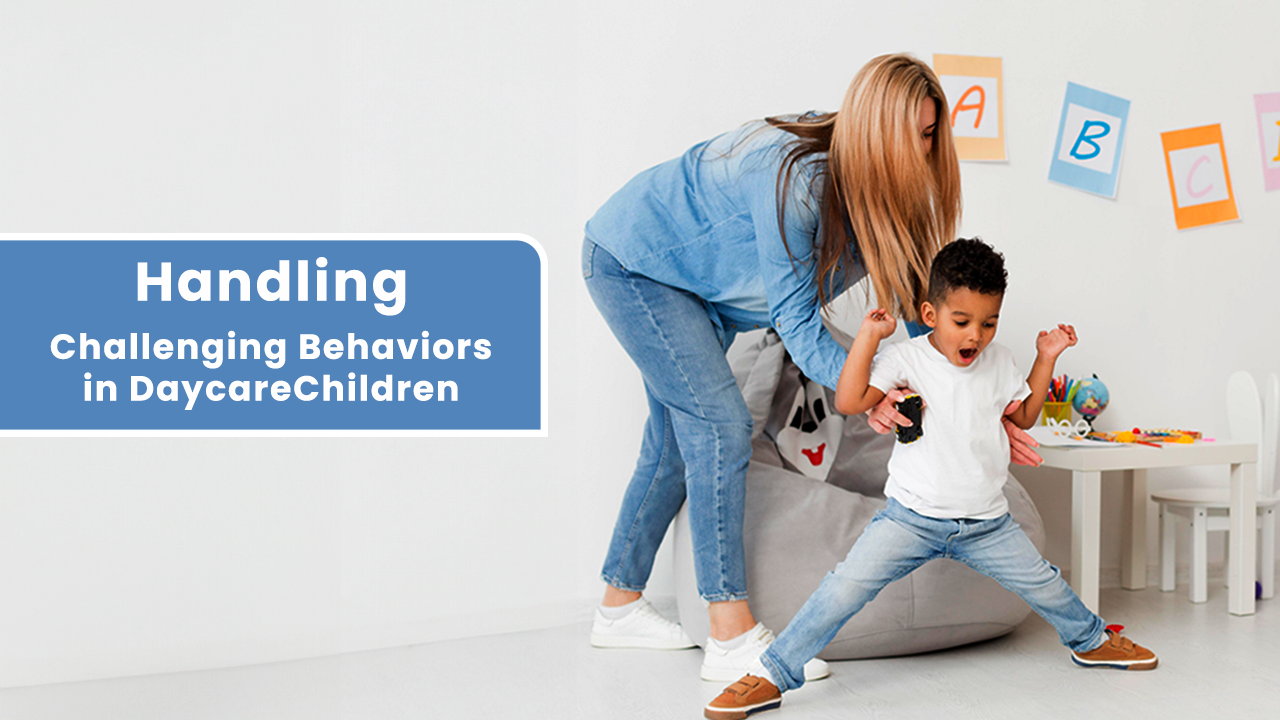Is Daycare Right For Your Child? A Balanced Look At The Challenges

Table of Contents
The Emotional Adjustment Period: Navigating Separation Anxiety
Starting daycare can be a significant emotional transition for both children and parents. Many children experience separation anxiety, a normal response to being away from their primary caregivers. Understanding and managing this anxiety is crucial for a smooth daycare experience.
- Symptoms of separation anxiety: Common signs include clinginess, excessive crying, increased tantrums, and even regression to earlier behaviors like thumb-sucking or bed-wetting. These symptoms can manifest before, during, and even after daycare hours.
- Easing the transition: A gradual introduction to daycare can help alleviate anxiety. Start with short visits, gradually increasing the duration as your child becomes more comfortable. Maintaining consistent routines at home and daycare can provide a sense of security. Familiar comfort items, like a favorite blanket or stuffed animal, can also offer comfort during the adjustment period. Open communication with daycare providers is vital; they can provide valuable insights into your child's behavior and offer strategies for support.
- Parental anxiety: Remember, parents also experience anxieties! Addressing your own worries through open communication with your partner and other parents, seeking support from friends and family, and practicing self-care techniques can help you better support your child. A calm and confident parent can help ease a child's anxiety.
Illness and Exposure to Germs: Protecting Your Child's Health
Daycare centers, being group settings, inevitably increase the risk of illness transmission. Children are constantly interacting, sharing toys, and touching surfaces, leading to a higher exposure to germs. While this is a concern, proactive measures can minimize the risk.
- Common daycare illnesses: Expect the usual suspects: colds, the flu, various viral infections, and stomach bugs. These are common childhood illnesses, and exposure in a daycare setting might even help build immunity over time.
- Minimizing illness: Diligent handwashing is paramount. Teaching your child healthy habits, like covering their mouth when coughing and sneezing, can also significantly reduce the spread of germs. Communicating with the daycare about any outbreaks or illnesses will allow you to take appropriate preventative measures. Monitoring your child's health closely and being vigilant about symptoms is essential.
- When to keep your child home: If your child shows signs of illness, especially fever, vomiting, or diarrhea, keep them home to prevent the spread of infection and to allow them to recover fully. Always follow the daycare's policies regarding illness and absenteeism.
Finding Quality Daycare: Vetting Providers and Assessing Care
Choosing the right daycare is a significant decision impacting your child’s development and well-being. Finding a reputable and trustworthy provider requires thorough research and careful evaluation.
- Factors to consider: Location, licensing (ensure it's properly licensed and meets all safety regulations), teacher-child ratios (lower ratios generally mean more individual attention), curriculum (does it align with your values and educational goals?), safety measures (security systems, emergency procedures), and cleanliness are all critical aspects to consider.
- Visiting and evaluating: Schedule visits to several potential daycares. Observe the interactions between teachers and children, ask detailed questions about their programs and policies, and check online reviews from other parents. Look for a nurturing and stimulating environment that promotes both learning and social-emotional development.
- Types of daycare: Familiarize yourself with the different options available, including in-home daycare, center-based daycare, and preschool programs. Each has its own advantages and disadvantages.
- Communication: Ongoing communication with daycare staff is essential. Regular updates on your child's progress, any concerns, and open dialogue will build a strong partnership that supports your child’s well-being.
Cost Considerations: Balancing Budget and Childcare Needs
The financial burden of daycare is a significant factor for many families. Understanding the costs and exploring options to manage them are crucial aspects of the decision-making process.
- Average daycare costs: Research the average daycare costs in your area. These can vary dramatically depending on location, type of care, and the daycare's amenities.
- Reducing expenses: Explore options for reducing daycare costs, such as government subsidies or employer-sponsored childcare programs. Shared care arrangements with other families can also help lower costs.
- Alternatives: Consider alternatives like family care, a nanny, or a family member providing care if your budget is tight. These options may offer more flexibility but might require more planning and coordination.
- Budgeting: Carefully factor daycare expenses into your family's overall budget. Create a realistic budget that accounts for all associated costs.
Social and Behavioral Challenges: Addressing Potential Issues
Daycare environments, while enriching, can present social and behavioral challenges. Understanding how to navigate these issues proactively is important.
- Bullying and peer conflict: Learn how the daycare addresses bullying and conflict resolution. Open communication with the daycare provider will help you understand and address any issues promptly.
- Behavioral issues: Some children may experience behavioral changes due to adjusting to a new environment or interacting with peers. Work collaboratively with the daycare to understand the root cause and implement strategies to address the behavior.
- Communication: Regular communication with the daycare staff is key to proactively addressing behavioral issues. Their observations and insights can be valuable in understanding your child's behavior in the daycare setting.
- Professional help: If you encounter significant or persistent behavioral issues, don't hesitate to seek professional help from a child psychologist or therapist.
Conclusion
Deciding whether daycare is right for your child requires careful consideration of several factors. While there are potential challenges associated with daycare, such as separation anxiety, illness exposure, and cost, these can be mitigated with careful planning and proactive measures. By thoroughly researching daycare options, maintaining open communication with providers, and prioritizing your child’s well-being, you can increase the likelihood of a positive daycare experience. Ultimately, the best choice depends on your child's individual needs and your family's circumstances. Remember to weigh the pros and cons carefully and make the decision that is best suited for your family. If you're still unsure about whether daycare is the right choice for your child, consider speaking with other parents, educational professionals, or your pediatrician. They can offer valuable insights and help you navigate this important decision.

Featured Posts
-
 Pakistan Stock Market Crisis Operation Sindoor Triggers Sharp Decline
May 09, 2025
Pakistan Stock Market Crisis Operation Sindoor Triggers Sharp Decline
May 09, 2025 -
 Draisaitls Injury Update On Edmonton Oilers Leading Goal Scorer
May 09, 2025
Draisaitls Injury Update On Edmonton Oilers Leading Goal Scorer
May 09, 2025 -
 Analyzing Figmas Ai Update Implications For Adobe Word Press And Canva
May 09, 2025
Analyzing Figmas Ai Update Implications For Adobe Word Press And Canva
May 09, 2025 -
 Wynne Evanss Girlfriend Liz Supports Him After Bbc Meeting Reschedule
May 09, 2025
Wynne Evanss Girlfriend Liz Supports Him After Bbc Meeting Reschedule
May 09, 2025 -
 1509
May 09, 2025
1509
May 09, 2025
